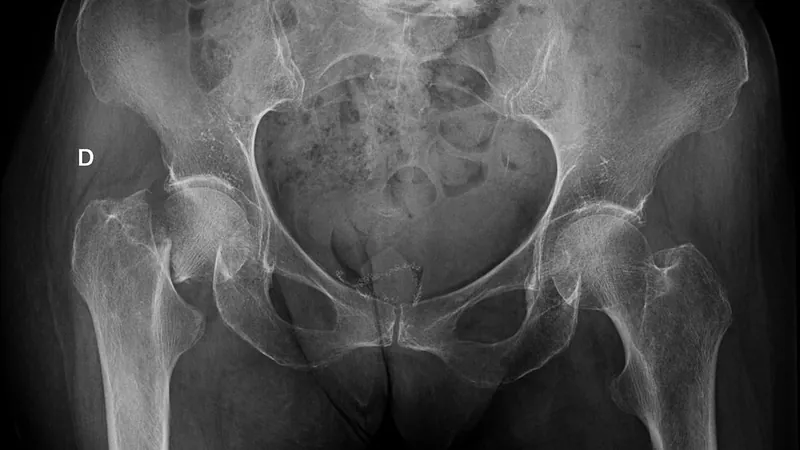
Warning: Your Prescription Could Be a Silent Saboteur of Bone Health - Shocking New Study Reveals!
2024-11-25
Author: Wai
Introduction
A groundbreaking new study has raised alarms about the potentially severe implications of one of America’s most prescribed drugs. Levothyroxine, commonly known as Synthroid, is taken by approximately 23 million people daily in the U.S. for the management of thyroid disorders. While this synthetic hormone plays a vital role in regulating metabolism, energy levels, and bodily functions, recent findings suggest it may also significantly increase the risk of osteoporosis, a debilitating bone disease.
Study Findings
Researchers at Johns Hopkins University conducted an investigation involving 81 patients on levothyroxine and 364 individuals not using the medication. Their findings revealed that those on Synthroid experienced a significantly greater loss of bone mass and density over a six-year follow-up period, even among patients maintaining ‘normal’ thyroid-stimulating hormone levels. This suggests a concerning association between long-term levothyroxine use and bone health, particularly in older adults who are already vulnerable to osteoporosis.
Expert Opinions
Professor Shadpour Demehri, a radiology expert at Johns Hopkins, emphasized the need for patients to discuss their treatment options with healthcare providers, especially since many individuals remain on levothyroxine long after their initial diagnosis. He pointed out that the exact cause of this drug-induced bone loss is still under investigation, highlighting that thyroid hormones indeed play a critical role in bone metabolism.
Impact of Osteoporosis
Osteoporosis poses a considerable threat, affecting roughly 10 million Americans aged over 50. The condition causes bones to become fragile and more susceptible to fractures, particularly hip fractures, which can severely impact mobility and independence. Dr. Jennifer Mammen, another co-author of the study, insists that regular monitoring of thyroid function tests is essential for those taking levothyroxine.
Concerns of Overtreatment
As concerning as this may sound, it isn’t the first study to question the widespread use of Synthroid. A 2023 inquiry from Yale School of Medicine found that up to 90 percent of individuals taking levothyroxine may not actually require it. The researchers suggest that many older patients receive thyroid hormone prescriptions without appropriate indication, raising concerns about the practice of overtreatment.
Contributing Factors
Furthermore, the role of hormones in bone health cannot be understated. Factors such as diet, genetics, and lifestyle choices play a role in the development of osteoporosis. In particular, smoking and poor nutrition are known risk factors.
Age and Gender Factors
Alarmingly, age alone increases susceptibility to osteoporosis, and women are notably more affected than men. With inadequate attention to thyroid health, patients may inadvertently find themselves on a path to increased fracture risk, mobility loss, and even premature death.
Conclusion
In summary, while levothyroxine remains an essential treatment for thyroid issues, the alarming implications for bone health mean that patients must engage in candid conversations with their healthcare providers about the risks versus benefits of continued use. As researchers from Johns Hopkins and beyond continue to scrutinize the safety of this commonly used medication, you could be at risk without even knowing it! Stay informed and safeguard your bone health while managing thyroid disorders effectively!


 Brasil (PT)
Brasil (PT)
 Canada (EN)
Canada (EN)
 Chile (ES)
Chile (ES)
 España (ES)
España (ES)
 France (FR)
France (FR)
 Hong Kong (EN)
Hong Kong (EN)
 Italia (IT)
Italia (IT)
 日本 (JA)
日本 (JA)
 Magyarország (HU)
Magyarország (HU)
 Norge (NO)
Norge (NO)
 Polska (PL)
Polska (PL)
 Schweiz (DE)
Schweiz (DE)
 Singapore (EN)
Singapore (EN)
 Sverige (SV)
Sverige (SV)
 Suomi (FI)
Suomi (FI)
 Türkiye (TR)
Türkiye (TR)